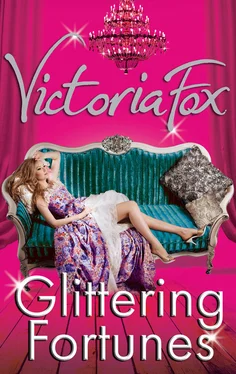Yet as they skirted the final corner, the Usherwood approach she had pictured so many times, the magical house at last appeared. Its details were tricky to decipher in the creeping dusk, but, oh, it was so definitely there , solid and timeless and noble, and when Susanna let the window down she was met by a fragrance of floras and honeysuckle, heat-soaked after a day in the sun, the quiet rush of a stream and the first faint glimmer of stars high above them in the lilac sky.
A single flare glowed downstairs. She wondered if they still used candlelight! It would be most charming if so.
Cato halted the vehicle, emerged from the driver’s side and immediately bolted round the bonnet to assist their ward. Susanna tried to open her door but it wouldn’t budge. She battered the window and Cato was forced to return to release an absurd child lock they’d had fitted—the humiliation!
‘Good evening, my lord.’ A large, flustered-looking maid came rushing out. She had a scribble of grey hair and a rubicund complexion, and Susanna was assailed by the unsavoury suspicion that she could have hidden her entire body behind one of the woman’s haunches, like someone hiding behind a tree trunk.
Barbara. Unfortunately for the housekeeper, she was just as imagined.
‘It’s good to have you home,’ offered Barbara, with a half-bob. Seeing Susanna, she added warmly, ‘I’m Mrs Bewlis-Teet, welcome to Usherwood.’
‘Baps,’ barked Cato by way of greeting (a private amusement: Barbara heard it as ‘Babs’), ‘regretfully we’ve had an accident. Bloody pothole back on that drive, Charles really ought to get it looked at; the damn thing’s a liability. Threw me right off course—Olivia here almost went under the wheels!’
Susanna didn’t think they had gone over any potholes.
Baps went to help. ‘Oh, dear me, you must have had a terrible shock.’
‘I’m fine!’ said Olivia, who was pale as a sheet and clearly disorientated. Her arm was bleeding. ‘Really, I’d like to go home.’
‘Listen to Baps,’ proclaimed Cato, ‘she’s a wise old goose.’
‘But I’m OK.’
‘There is to be no argument.’
‘Please, if I could just—’
‘Absolutely not—you’re concussed: you haven’t the faintest clue what you’re saying.’ Cato draped his arm across her shoulders. ‘I won’t let you out of my sight, little one.’ His teeth flashed white. ‘That’s a promise.’
Susanna heaved her suitcase from the boot.
‘This is Mole,’ Cato tossed over his shoulder, before sliding through the door.
Susanna put her hand out. ‘Susanna,’ she said cordially.
Baps shook it, and curtseyed ever so slightly in a way that made Susanna’s heart tremble with pleasure, for it had to be due to her imminent Usherwood status rather than her celebrity: Baps didn’t look like the sort of woman who would have seen one of Susanna’s movies, which were typically about twenty-something city cliques on the lookout for Mr Right; she looked like the sort of woman who thrashed through undergrowth with a walking cane and made blackberry jams from scratch.
Through the entrance it was huge and echoey. The great black hood of a fireplace was crackling embers, deep with smoke, and a massive staircase climbed through the floors. A catalogue of Cato’s ancestors posed dourly: the men in breeches, boasting muskets and shotguns and earnest, humourless expressions; the women seated primly, their ringed fingers nestled in the fur of some lap-dwelling pet.
The light Susanna had seen on approach emanated from an adjoining room, from which she could detect the most delicious cooking aromas. The glow it provided cast sallow shadow across the largest oil portrait, a study of the former Lord and Lady Lomax. The couple eyed their guests on arrival, sombre faces flickering and jumping with every leap of the fire. The woman’s expression could only be described as sad. The man’s was blazing with latent savagery. Susanna shivered.
‘We’re saving electricity,’ explained Baps, as she led the way. ‘Heating too—despite the season it can get awfully draughty. I’ve made up the fire in your room, and there’s a supply of blankets in the wardrobe. You get used to it after a while.’
Susanna followed, gazing up as she went so that she almost tripped over the frayed burgundy rug that covered the flagstones. She tried to picture herself living here—if the rest of Usherwood were like this they would have to gut the whole thing! Beneath the supper smells lay the steeped, woody scent that old houses carried, not entirely unsavoury, and nothing one couldn’t undo with the help of a few plug-in air fresheners (Vintage Rose was her favourite). How much would Cato permit her to spend? She could hear the wind whistling through the vaults: replacement windows were a must, as were new carpets, plenty more lighting, and a spread of fabrics and furnishings to brighten up the space. They would work from the bottom up, beginning with wallpapering the downstairs and covering up those ugly mahogany panels. How ancient it looked! The house was crying out for a woman’s touch. It was easy to feel overwhelmed, but Susanna would attack it logically, as she did everything.
‘Rotten scrape you’ve got there,’ Cato was saying, his voice somehow louder in their new surroundings, ricocheting through the hollow caverns and reminding the house to whom it formally belonged. ‘Bandages, if you please, Baps!’
In the kitchen a table for three had been laid, silver cutlery and goblets for wine, through which Cato’s bungled efforts at winding the dressing blew like a storm. She wondered why they couldn’t eat in the dining room, before deciding it too might be in drastic need of her attentions. One of Susanna’s greatest incentives was the thought of hosting her infamous dinner parties here, sending out invitations, boasting the family glassware, the consummate queen of Usherwood.
Wait until her LA friends saw! They would be mad with jealousy.
‘Oh, let her go, Cato,’ Susanna said, wafting in. It was important she make her mark, show them all who was boss. ‘Someone can drive her, can’t they?’
‘Do pipe down, Mole,’ came Cato’s peeved response.
Susanna dropped on to a hard wooden bench and plucked an emery board from her purse. She was attending to her manicure when another woman, a fraction younger than Baps and decidedly more attractive, emerged from the scullery. She was slim, naturally pretty and her fair hair was wound in a knot.
‘I’m Caggie,’ she introduced herself, ‘house cook.’ She put out a flour-caked hand, which Susanna deemed rather disrespectful. Weren’t there rules about this sort of thing? When one met the Queen, for example, didn’t one wait to be presented, instead of sticking one’s grasping fingers out like a beggar clutching at coins?
‘Hello,’ said Susanna. She was accustomed to meeting new people and basking in the glow of her reflected celebrity—she was world-famous, after all—and was disturbed at how Caggie regarded her levelly, her green eyes spelling a challenge.
‘Caggie’s been here almost as long as me,’ supplied Baps. ‘She’s really wonderful; you’ll get to taste her best while you’re over. She’s been whipping up the most super treats ever since the boys were small.’
‘I’m sure it’ll be a far cry from the private chefs of Beverly Hills,’ said Caggie—a touch sarcastically, Susanna thought.
Was it her imagination, or did Cato’s gaze flicker just a moment too long over their new addition? She refused to entertain it: Caggie had to be flirting with fifty, and must spend her life elbow-deep in lard and gravy. She was tired, that was all. And anyway, once she and Cato were married they would be cutting both the women loose. Susanna would learn to cook herself, thank you very much, and if she needed extra help she would simply fly in Kaspar from her favoured bistro on Rodeo.
Читать дальше












